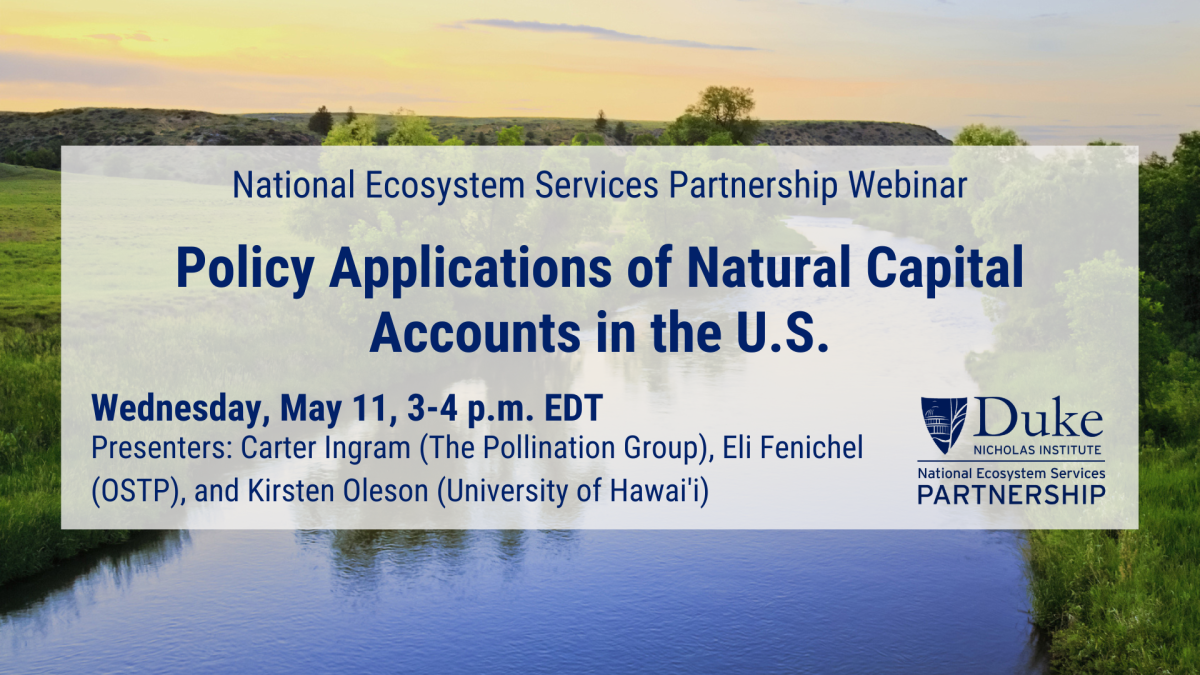Eli Fenichel: Renewing US Leadership on Natural Capital Accounting and Environmental-Economic Statistics
The Biden-Harris Administration understands that nature is an important contributor to economic success, and on April 21, 2022, announced a new initiative to develop and maintain natural capital accounts and associated environmental-economic statistics for the United States. The U.S. has a long intellectual history of developing economic measurement that brings in the environment. The U.S. has pillars of strength to build on as it initiates work to coordinate natural capital accounting across the government. However, the U.S. has been slow to develop systematic natural capital accounts and associated environmental-economic statistics. This talk will address the Administration’s high-level vision for natural capital accounting and associated environmental-economic accounts, connections to the existing statistical system, how the administration’s new efforts build on existing strength within the U.S. Government, and why now is the time to organize the natural capital accounts of the United States.
Carter Ingram: Opportunities for the private sector to utilize and support SEEA aligned natural capital accounts
Current pilot SEEA-aligned NCA data and analyses developed for the United States can help address some of the common challenges that businesses face in using natural capital data such as accessibility, quality, and credibility, important for business decision making. This talk will address some of the direct applications of these accounts for business strategic planning, investment decisions, supply chain management, operations management, risk management, and corporate reporting. In addition, the discussion will address improvements needed to fill data gaps and produce estimates aligned to the to business needs.
Kirsten Oleson: Experiences with natural capital accounting in Hawaiʻi
As one of the most isolated places on Earth, Hawaiʻi must carefully manage its natural resources. This research explores how natural capital accounts can contribute to sustainable management of two precious resources: water and coastal ecosystems. This talk will discuss results for Oʻahuʻs water account, current efforts in coastal ecosystem accounting, and the potential pathways to using the accounts in economic policy, sustainability dashboards, and conservation planning.



